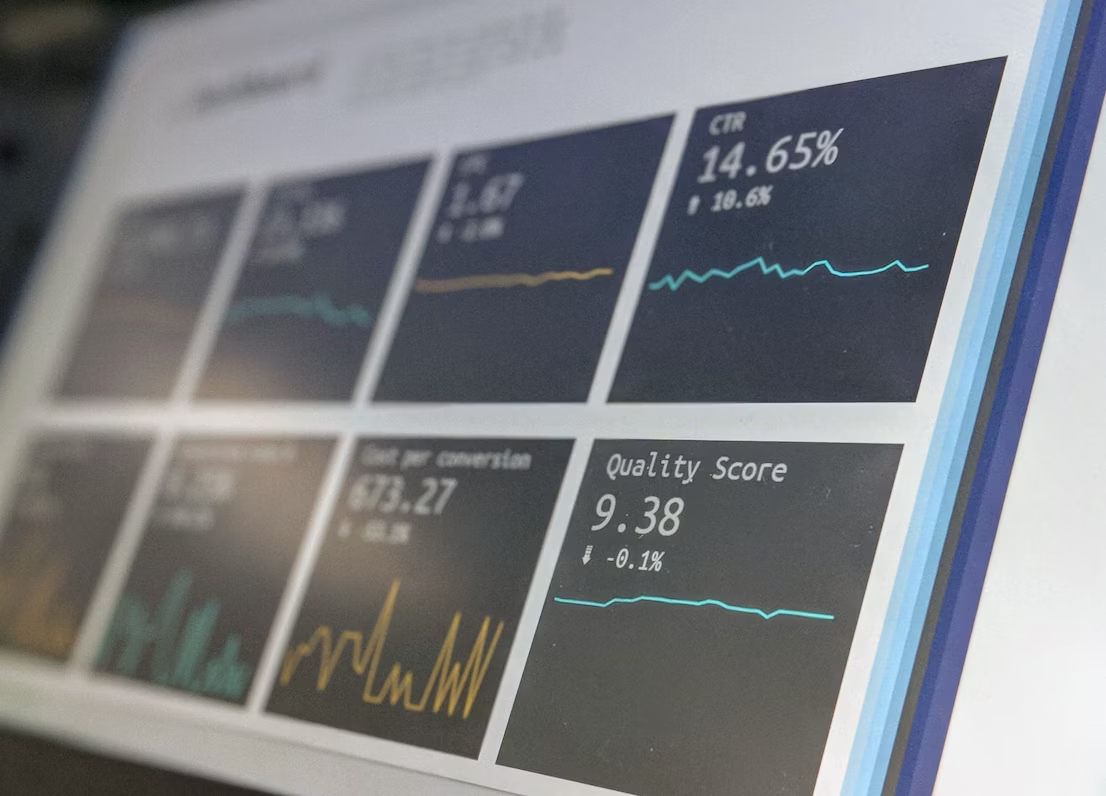In the world of theater, the spotlight is often on the actors, directors, and designers. But what about the unsung heroes of the theater world—the data analysts? You might be surprised to learn how the role of data in theater is transforming every aspect of the stage, from the scripts we write to the way we engage audiences. It's a brave new world out there, and this guide will take you on a journey to explore it.
1. Data in Theater: An Overview
If you thought data and theater were two concepts that couldn't be further apart, time to change that tune. In reality, the role of data in theater is like the understudy who steals the show—quietly influential, and packing a punch when it comes to impacting outcomes.
But how does it work? Simply put, think of data as the playwright of the digital age. It tells us compelling stories about our audiences: who they are, what they like, what makes them laugh, cry, or leap to their feet in a standing ovation. It helps us understand patterns in audience demographics, preferences, and behaviors. This, in turn, can influence everything from the themes and genres we explore in our plays, to the way we market our shows.
But that's not all. Data also plays a pivotal role in script analysis, enabling us to delve deeper into the text, explore themes and character arcs, and make more informed decisions about direction and design.
Ever had a gut feeling about which shows will sell out, or which scenes will have the audience in stitches? With data, these predictions become less about gut feelings and more about hard facts. The role of data in theater, therefore, is about providing us with the tools and insights we need to make more informed decisions, and ultimately, produce better theater.
Who knew data could be so dramatic?
2. Impact of Data on Theater Production
Let's shift our focus to a more pragmatic arena—production. You're likely familiar with the old adage, "the show must go on." Well, in the age of data, it's more like "the show can go on—and get even better!"
Harnessing Data for Efficient Production Management
The role of data in theater production isn't just about understanding audiences, it's about enhancing efficiency behind the scenes, too. Think about it: What if you could predict the optimal rehearsal schedule? Or determine the most cost-effective set design? By analyzing historical data from past productions, you could anticipate potential challenges and nip them in the bud. And let's not forget about budgeting. By leveraging data, theaters can make smarter decisions about where to allocate resources, helping to keep those dreaded production costs in check.
Influencing the Creative Process with Data
But it's not all spreadsheets and statistics. The creative process also stands to gain from the data revolution. Imagine being able to analyze scripts based on previous hits and trends, and then tailoring your current production to match what audiences love. Data might even help you discover the next Hamilton before anyone else does!
Data for Streamlined Communication and Collaboration
Finally, data plays a critical role in improving communication and collaboration within the theater community. By analyzing data from various departments— from set design to marketing— everyone on the team gets a clearer picture of the production process. This leads to better coordination, fewer misunderstandings, and a smoother journey from the first rehearsal to the final curtain call.
So, whether it's budgeting, creative decision-making, or team collaboration, the role of data in theater production is helping to raise the bar for what's possible on stage. And that's a standing ovation-worthy performance if ever there was one.
3. Applications of Data in Script Analysis
Now, you're probably wondering, "How does data fit into the artistic side of things?" Well, let's take a fresh look at the role of data in script analysis, shall we?
Using Data to Unearth Hidden Patterns in Scripts
Data can reveal patterns and trends in scripts that might not be immediately obvious. For instance, by analyzing dialogue, you could find recurring themes or catchphrases that resonate with audiences. Data can also highlight patterns in character development and plot progression. Remember, it's not about replacing the human touch in script analysis, but complementing it with insights that can help create a more compelling story.
Data-Driven Casting Decisions
Now, onto the actors. Data can offer invaluable insights into casting. What types of roles have certain actors excelled in? Which character-actor combinations have audiences loved in the past? With data, casting doesn't have to be just a gut feeling—it can be an informed decision that increases the chances of success.
Predicting Audience Reactions with Data
Lastly, there's the audience—always a tough crowd to please. Fortunately, data can also play a role in predicting how they might react to a script. By analyzing audience reactions to past performances, you can tweak your script to strike the right chords.
In short, whether it's unearthing hidden patterns, making casting decisions, or predicting audience reactions, the role of data in script analysis is about using information to make informed decisions. The result? A production that's not just data-driven, but audience-loved.
4. Data-Driven Audience Engagement Strategies
We've already seen how data can shape the script and casting process, but it doesn't stop there. Let's now pivot to the role of data in theater for driving audience engagement.
Personalizing Audience Experiences
How can you make your audience feel special? One word: personalization. With data, you can tailor your communications to suit individual preferences. Maybe some of your audience members are fans of comedy, others of drama. Knowing their preferences allows you to send targeted updates on upcoming shows that they might be interested in, making them feel seen and valued.
Enhancing Social Media Engagement
Social media is a powerful tool for audience engagement. Analyzing data from your social media channels can give you insights into what kind of content your audience interacts with the most. Is it behind-the-scenes photos, actor interviews, or sneak peeks of upcoming shows? Once you know, you can create more of the content your audience loves.
Optimizing Show Schedules
Data can also play a key role in determining show schedules. By analyzing ticket sales, you can identify which time slots are the most popular among your audience and schedule more shows during those times. A data-driven schedule? That's the ticket!
In essence, the role of data in theater extends beyond the stage—it can help create a more engaging experience for your audience. After all, a happy audience is an engaged audience, and an engaged audience is more likely to keep coming back for more.
5. Case Studies: Successful Use of Data in Theater
Now that we've seen the theory, let's dip our toes into some real-world examples. Here are a couple of case studies that highlight the role of data in theater in action.
Broadway Big Data
Broadway Big Data is a company that provides data analytics services to theater companies. They used data from customer reviews and social media to predict the success of Broadway shows. With this data, they were able to correctly predict the Tony award winners with an accuracy of over 70%. This case study shows how data can be used to gauge audience sentiment and predict trends in the theater industry.
The Royal Shakespeare Company
The Royal Shakespeare Company (RSC) in England has been a pioneer in using data for audience engagement. They analyzed ticket sales data to determine which types of performances were most popular among their audience. This information helped them tailor their future productions to audience preferences, resulting in increased ticket sales and a more satisfied audience. This case study demonstrates how data can optimize production decisions and enhance audience engagement.
The takeaway here? The role of data in theater is not just a theory—it's being put into practice by theater companies both big and small, with promising results. Data just might be the secret weapon for the theater industry in the 21st century.









